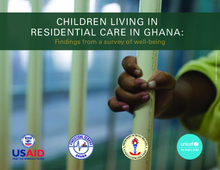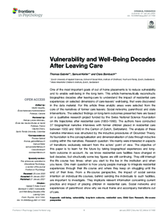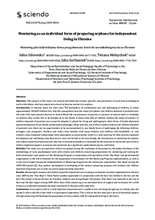Displaying 111 - 120 of 1459
This report, produced by the Department of Social Welfare and Ghana Statistical Service with UNICEF support, provides an overview of the main findings from a census of residential care facilities in Ghana, an enumeration of the child population in these facilities, and a survey on a representative sample of such population.
This chapter summarises the detailed findings of the United Nations Global Study on Children Deprived of Liberty and exemplifies the significant leading role of academia in ‘making the invisible and forgotten visible’ throughout the world.
The present research study is an exploratory study to examine factors like lack of communication and attachment to parents, abuse, poverty and peer influence with a sample size of 100 runaway children (50 girls, 50 boys) residing in a non-governmental organisation in NCR, Delhi.
This article hermeneutically reconstructs biographies decades after leaving-care to understand the impact of residential care experiences on selected dimensions of care-leavers’ well-being, that were discovered in the data material.
The present paper emphasizes on the trends of institutional care in India where the large population is poor. Keeping in view the socio-economic conditions of the country, it is an attempt to explore the challenges and living conditions of children in institutional care run by government and non-governmental organizations in the regions of Punjab and Chandigarh in northern India.
The aim of the current paper is to examine the demographic, crime-related and psychosocial characteristics of child welfare and juvenile justice youths in shared residential care and subsequently examine its relationship with offending behavior in adulthood.
The two primary objectives of this study were 1) to compare recent child abuse (physical, emotional, and sexual) between orphaned and separated children and adolescents’ (OSCA) living in institutional environments and those in family-based care; and 2) to understand how recent child abuse among street-connected children and youth compared to these other vulnerable youth populations.
The aim of this study was to examine whether 1) attachment to the biological parents mediates the association between abuse and suicidal risk (SR) and 2) attachment to a foster parent (whether from a foster home or an institution) moderates the effect of attachment to biological parents on SR.
The authors of this study used data from a longitudinal randomized controlled trial of foster care for institutionally reared children to examine whether caregiving quality and stressful life events (SLEs) in early adolescence (age 12) influence patterns of hypothalamic–pituitary–adrenal (HPA) axis and sympathetic nervous system (SNS) reactivity.
The purpose of the study is to analyze and define the content, specifics, and procedures of social and psychological work with citizens who have expressed a desire to become mentors for orphans.



